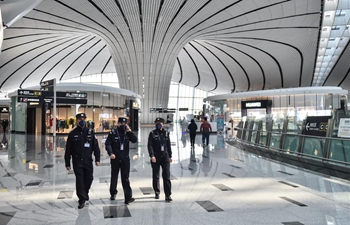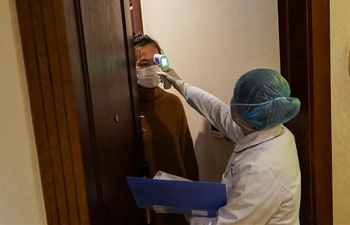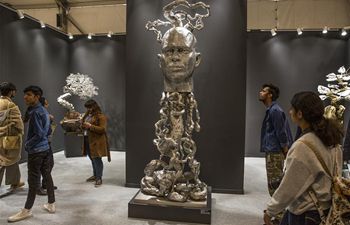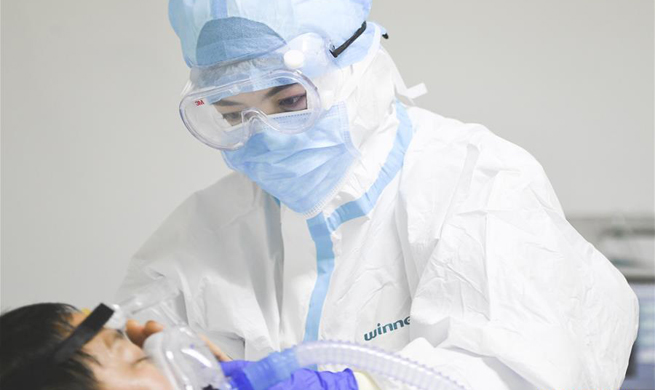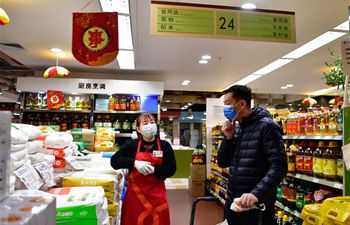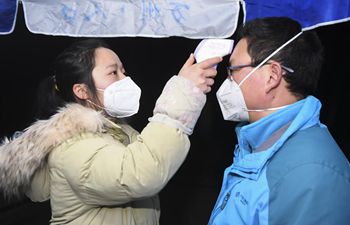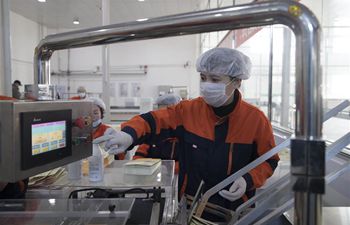HEFEI, Feb. 3 (Xinhua) -- Leading up to the Spring Festival, livestream broadcasters wear red scarves in their livestreaming sessions, introducing new clothes and local specialties to their fans in studios decorated with red lanterns and firecracker decorations.
Ma Zhesong, who is responsible for the e-commerce business in the Honglin Township in the city of Xuancheng, east China's Anhui Province, said they are witnessing a spike in purchases each Spring Festival holiday.
"For the Chinese people, it's a tradition to buy and wear some new clothes for the new year. Local specialities and common purchases for the Spring Festival such as rice cakes and preserved meat are also very popular," said Ma, who has been in the e-commerce trade for 12 years.
The broadcasters not only promote new clothes in the studios but also introduce local agricultural products via livestreaming sessions in the field.
Zhang Wenwen has been a livestream broadcaster for about eight years in Honglin. The festive atmosphere of the Spring Festival is spread to her fans across the country through the camera, she said.
At the busiest time, she does livestream sessions almost every day in the field or by the stream in her village, presenting the production and packing process of the products such as bamboo digging and rice cake making.
"It feels like you have experienced the whole process by watching the livestream session and can ask the broadcaster questions," she said. "Livestreaming makes the purchase much more fun."
China's live-streaming users may rise to 524 million by 2020, according to a report released by iiMedia Research, a Chinese firm specialized in data analysis service for new economic industries. About 40 percent of the surveyed users said that they would buy products introduced by stars or online celebrities during the livestream sessions.
During the Singles' Day shopping spree on Nov. 11, 2019, more than 100,000 online shops provided a live broadcast session, with a turnover of nearly 20 billion yuan (about 2.92 billion U.S. dollars). A total of 20,000 livestream sessions were brought from villages, with over 40 county chiefs taking part, promoting agricultural products from their counties.
In Jiyuan Village, Qimen County, about 200 km away from Honglin, livestream broadcasters are also preparing for their Spring Festival sessions.
"People not only buy goods and products for themselves but also gifts for their relatives and friends. Our black tea expects a sales surge," said Jiang Xuexia, one of the livestream broadcasters who manages a tea garden of over 200 hectares.
She did 39 livestream sessions over the past year on tea leaf picking, frying as well as tea culture and other related new year traditions.
"We carefully prepare scripts and decorate the studio for the Spring Festival sessions to involve as many local traditions and cultural aspects as possible," Jiang said. "We also hope to attract more fans and bring in a better year for ourselves."





